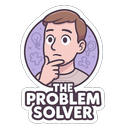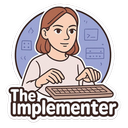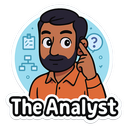algorithms in action
Implement and compare key search and sort algorithms.
Your Learning Journey
Planning algorithms using flowcharts and pseudocode.
Implementing a Simple Search on an Unordered List
Implementing a 'Divide and Conquer' Search on a Sorted List
Implementing a Simple but Inefficient Sorting Algorithm
Low Stakes Knowledge Check
Module introduction
Have you ever wondered how a search engine can sift through billions of web pages in a fraction of a second, or how a music app can instantly sort a massive library of songs? The secret lies in algorithms – the powerful, step-by-step recipes that tell computers how to solve problems efficiently. This journey will take you from the basics of planning and visualising these recipes to writing your own code for some of the most famous and fundamental algorithms in computer science. By the end of this module, you will have the power to not only follow an algorithm but to understand, create, and judge which ones are the best tools for the job.
Why does this module matter?
Understanding how algorithms work is like learning the grammar of digital problem-solving. It's a fundamental skill that allows you to think with more structure and precision, whether you're organising data, solving a puzzle, or building your own software. These concepts are the bedrock of computer science and are used everywhere, from your favourite video game to the complex systems that run our world.
1
For you
This module will help you develop several key computing personas:

The Problem Solver: This is the heart of algorithmic thinking. You will learn to take a challenge, like finding a specific item in a huge list, and design a clear, logical, and efficient step-by-step plan to solve it, embodying the full process of computational thinking.

The Implementer: An algorithm is a plan, but its power is only unlocked when it's turned into code. You will act as an Implementer, translating the theoretical steps of searching and sorting algorithms into tangible, working Python functions that bring your logical plans to life.

The Analyst: It's not enough to just make an algorithm that works; it's crucial to know if it's any good. You will develop your inner Analyst by critically evaluating different algorithms, comparing their efficiency by counting their steps, and making reasoned judgements about which one is the best choice for a specific task.
2
For your future
The skills you learn in this module are the starting point for many exciting and in-demand careers. One of the most direct pathways is to become a Software Developer.
Career focus: Software Developers are the creative minds behind computer programs. They design, build, and maintain the software that we use every day, from mobile apps and video games to large-scale business systems and the operating systems that run our computers.
Key Skills: This module builds the absolute core of a Software Developer's toolkit. You will learn to design and implement standard searching and sorting algorithms, a fundamental requirement for the role. Crucially, you will also learn to analyse the efficiency of your code, which is vital for writing high-quality software that is fast and doesn't waste resources.
Interesting facts: The first computer programmer is widely considered to be Ada Lovelace, who wrote the first algorithm intended for a machine in the 1840s. The global demand for software developers is so high that it's one of the fastest-growing professions, with millions of unfilled jobs worldwide. Many developers work on open-source projects, collaborating with people across the globe to build free software like the Linux operating system or the Python programming language.
Our Learning Journey
Our journey will begin by learning how to represent algorithms clearly using the universal languages of flowcharts and pseudocode. With these planning tools in hand, we will dive into the world of searching algorithms, first implementing a straightforward linear search before discovering the clever and much faster binary search. We will then turn our attention to sorting data, programming a simple bubble sort and exploring the powerful "divide and conquer" technique used by the merge sort. Throughout our journey, we will act as analysts, constantly comparing the efficiency of these different methods to understand the crucial trade-offs that every programmer must make.
Last modified: January 12th, 2026





















